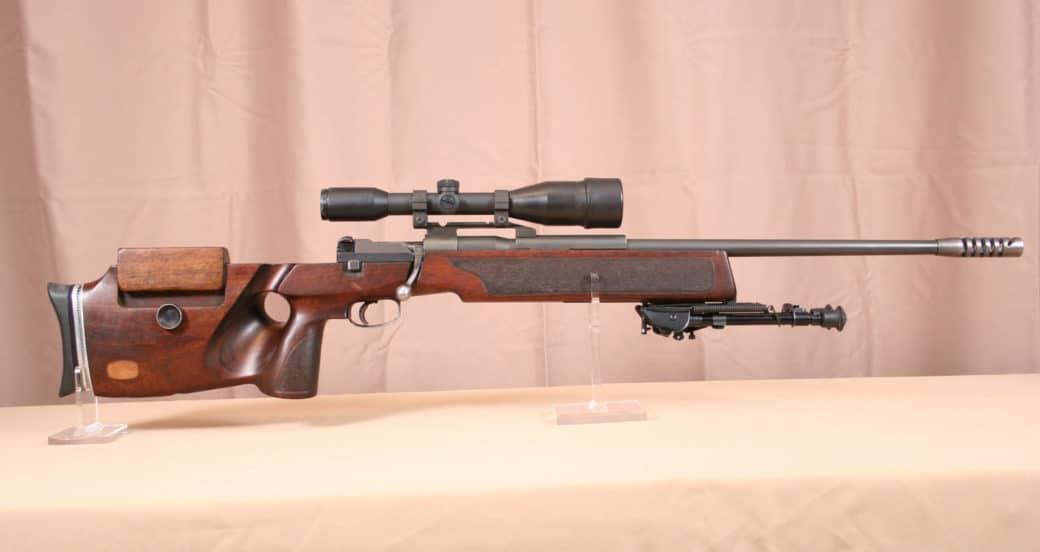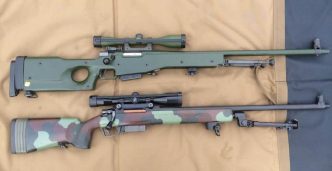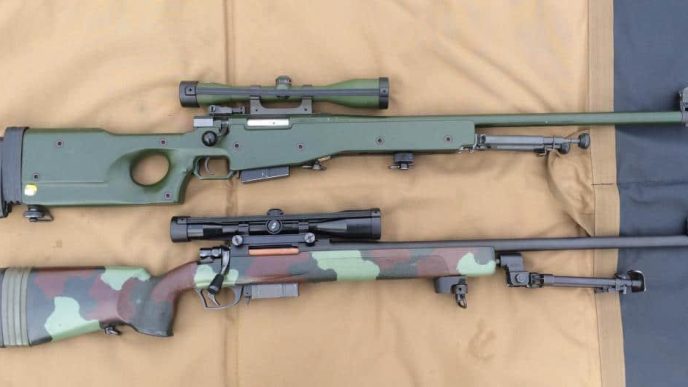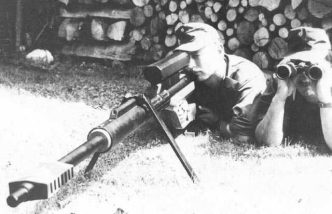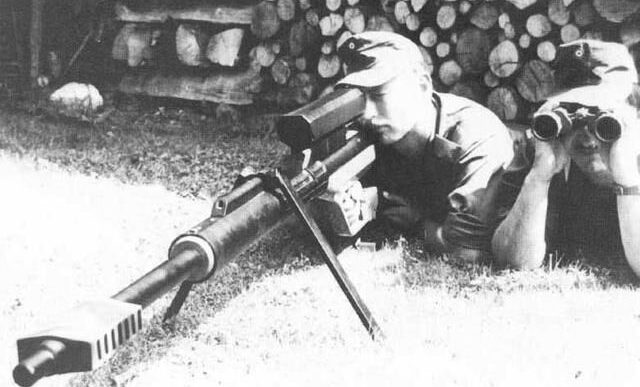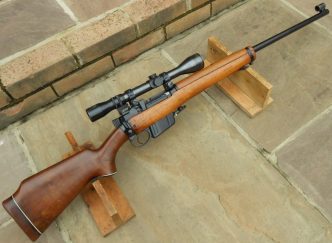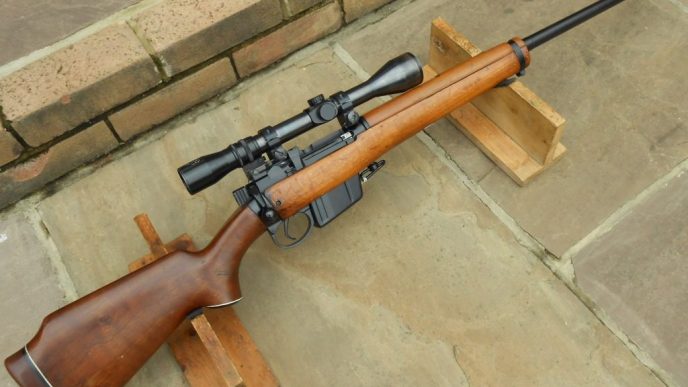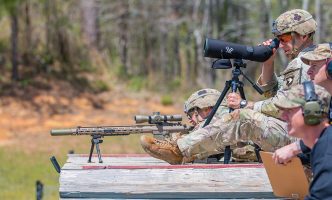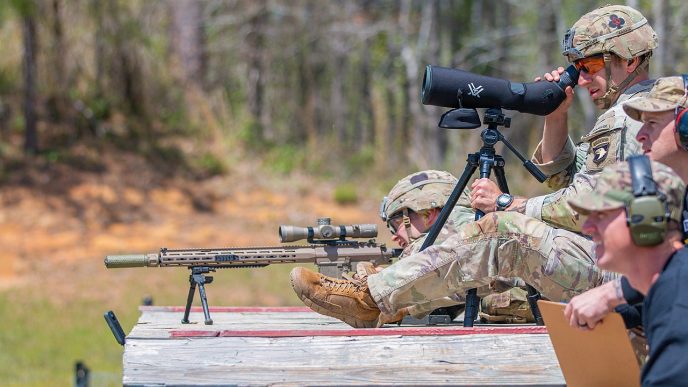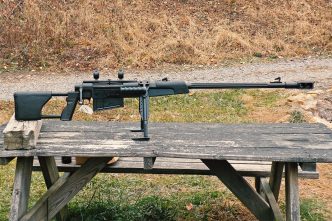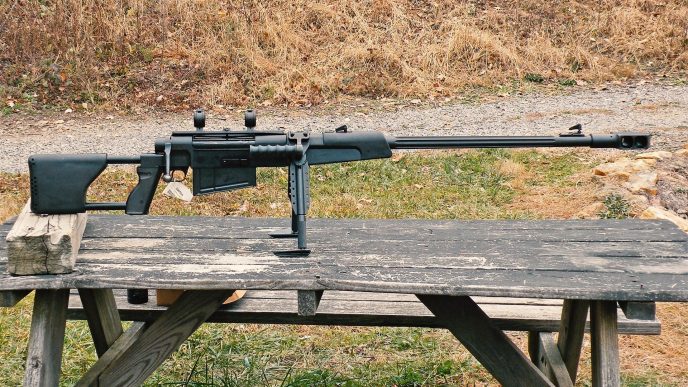Mauser SP66 is a sniper rifle designed in 1976 as the increased need for semi-automatic sniper rifles at the rifle market. The rifle was based on conventional hunting design and was developed for both military and law enforcement use. The rifle had a solid success and it was adopted by various military and law enforcement units from many countries, including Germany, Italy, and Israel.
Some of the Mauser SP66 rifles are still in service, but production had been ceased in 1985 with the introduction of the Mauser 86 SR.
Introduction
When the armies of the world adopted semi-automatic rifles, most of them sapped a telescope on those which proved-out best in their acceptance tests and issued them to snipers. The theory was that semi-autos made good sniping weapons since the fire did not have to move his arm to operate the bolt and therefore was less likely to disclose his position.
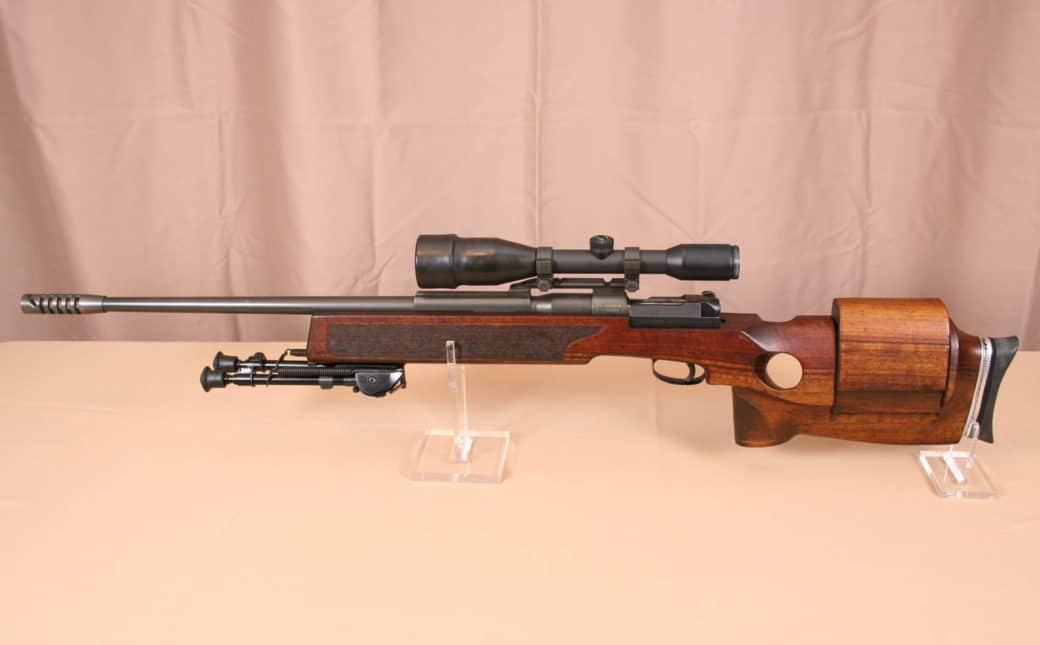
This seems to have arisen because of the Soviet Army’s policy of giving semi-autos to snipers during World War II, but in my view, the reason for this was more than their semi-autos were somewhat temperamental unless properly looked after, and a sniper is more likely to do devote care to his rifle than the average front line soldier.
In any event, after some years the snipers of the Western armies began complaining that stealthy reloading was of little use unless you could hit the target in the first place, and that military semi-autos, no matter how good, were simply not accurate enough for sniping purposes. As a result, there has been a gradual move back to bolt action rifles for snipers, and this Mauser is the issue for the German and at least a dozen other armies.
Design
In a first manner, the Mauser SP66 is based on the civilian Model 66 Super Match hunting rifle. In appearance you would be excused for thinking that it is a high-quality match rifle; the stock is strictly functional and non-military, with a near-vertical pistol grip, thumb-hole, deep comb and adjustable cheek-rest, and deep stippled fore-end. All this, of course, simply permits the sniper to get the best ‘hold’ he possibly can, which is half the battle. The action is a short Mauser bolt locking into the receiver with forwarding lugs and feeding on an integral three-round magazine concealed within the depth of the fore-end.
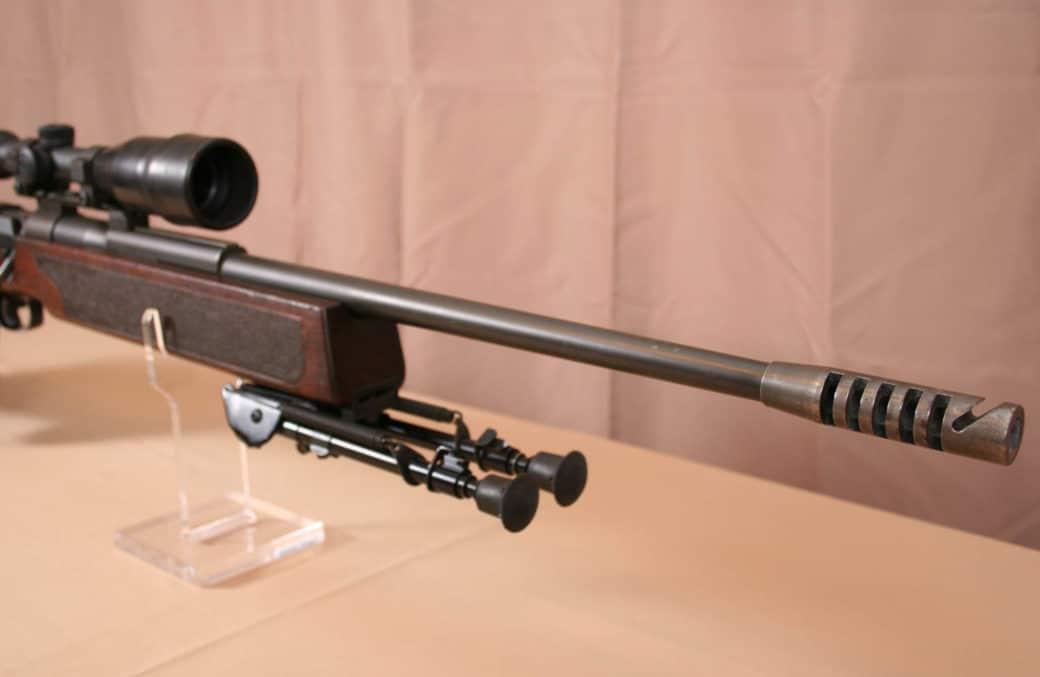
The bolt handle is at the forward end of the bolt, just behind the locking lugs, so that it is close to the trigger and reduces the action length to about half the normal. The firing pin spring is stronger than normal to give a fast movement to the striker and the ‘lock time’ (the time between pressing the trigger and the exit of the bullet from the muzzle) is about half of that with a conventional Mauser action.
No sights are fitted; the user is expected to specify what he wants and the receiver is then adapted to it; Mauser recommends using a Zeiss Diavari optical telescope or a Varo or similar image-intensifying sight. The muzzle is fitted with a complex muzzle brake and flash hider which is designed to prevent the fire from being dazzled by his own flash at night, a feature of particular importance when image-intensifying sights are in use.
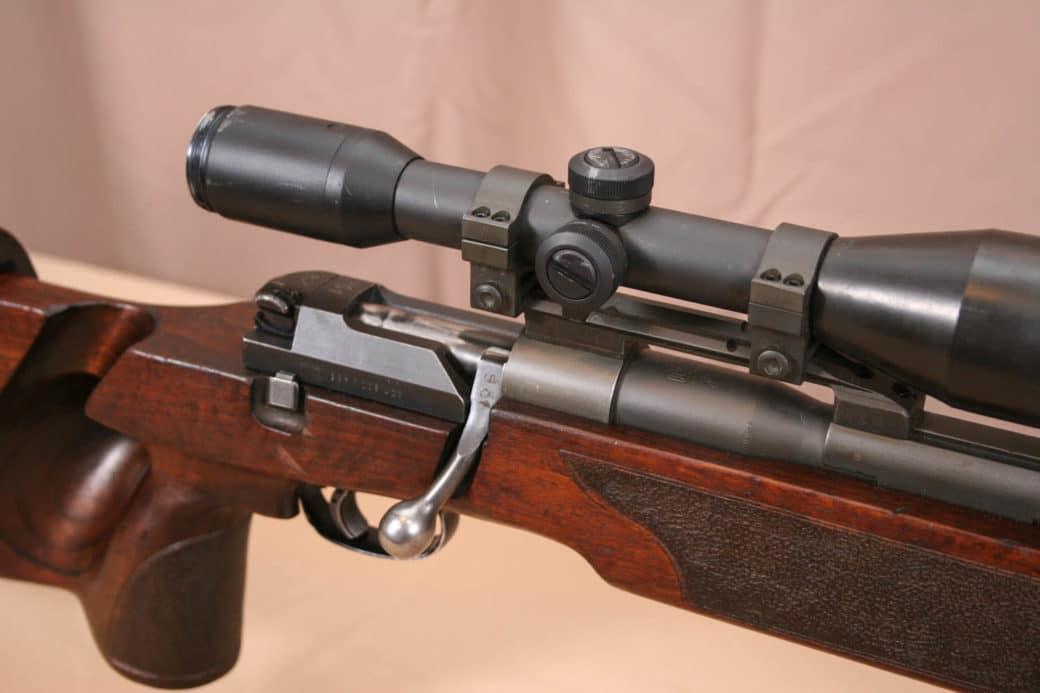
I have been unable to fire the rifle, but reports indicate that its inherent accuracy is well in excess of the capabilities of stock military ammunition. Most countries are now taking steps to produce special batches of cartridges that have been more carefully assembled than the regular run-of-the-mill issue ammunition, for use solely by snipers, and with this available, the Mauser will undoubtedly come into its own.
Technical specifications: Mauser SP66
| Manufacturer: | Mauser-Werke Oberndorf GmbH, Oberndorf Am Neckar, Germany |
| Designed: | 1976 |
| Service: | 1976 – 1985 |
| Type: | bolt-action, magazine |
| Caliber: | .308 Winchester (7.62 mm NATO) |
| Barrel: | 26.7 in (670 mm) |
| Weight (empty): | 6.12 kg with the scope and without a bipod |
| Effective firing range: | 1,000 m (3,281 ft) |
| Rate of fire: | single |
| Magazine capacity: | integral magazine with 3 rounds |
| Sights: |
Mechanical: No backup iron sighs;
Optics: Optical sight;
|
